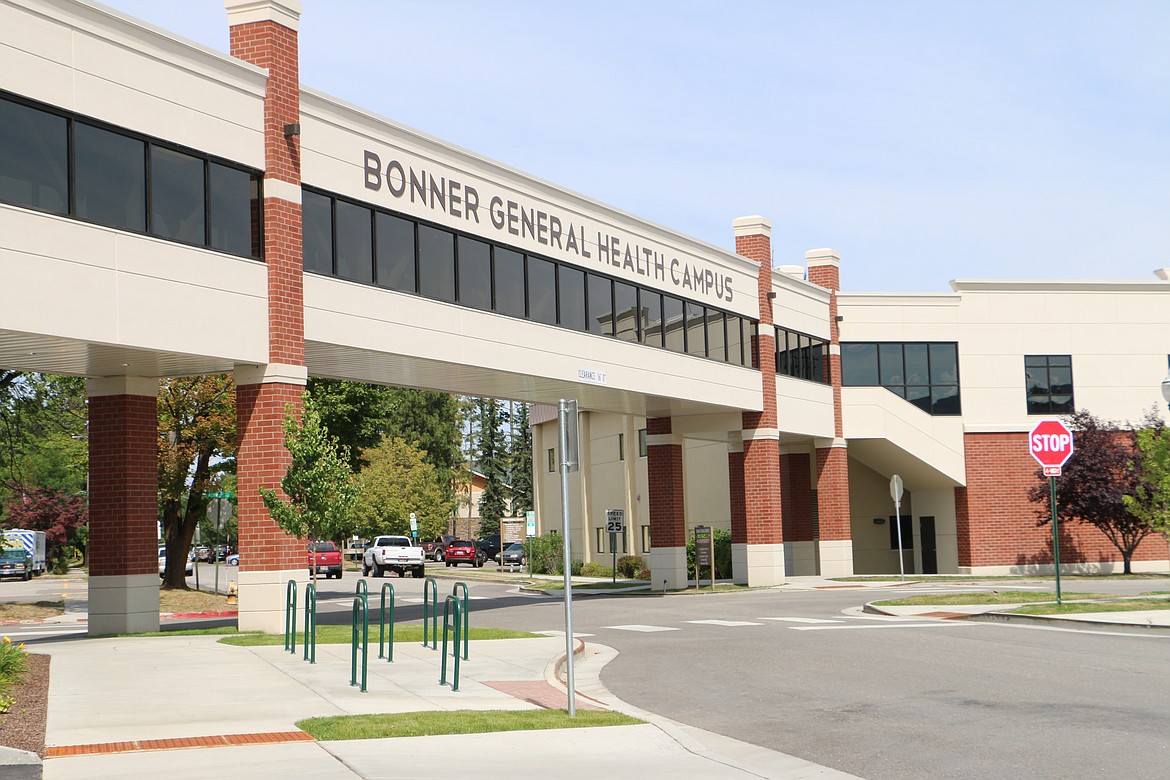COVID-19 surge could limit patient transfers
▶️ Listen to this article now.
While the numbers may change from one moment to the next, what isn't changing is the impact of the latest COVID-19 surge on area hospitals, including Bonner General Health.
"Our regional hospitals and hospitals in Washington, Montana, Utah, and Wyoming are at capacity, limiting the ability to transfer patients requiring a higher level of care," Erin Binnall, public information officer at Bonner General.
The hospitals have reached the point where many aspects of medical care are being affected, Binnall told the Daily Bee.
"The ability to transfer patients in need of specialty care is unlikely," she said. "This means patients we typically transfer are being cared for here, increasing the burden on staff, supplies, and providers. In addition, the acuity of our hospitalized patients has risen."
According to the Idaho Capital Sun, more than 730 people in the state were hospitalized in Idaho with COVID-19. The number of adults in hospital intensive care units is nearing 200, and a larger share of the state’s intensive care beds are taken by people with the coronavirus, the nonprofit news organization reported.
While the 25-bed critical access hospital's capacity is constantly changing, like many in the state is operating under either contingency standards of care or crisis standards of care. Statewide, crisis standards of care were activated by the Idaho Department of Health and Welfare on Thursday due to a massive increase of COVID-19 patients requiring hospitalization in all areas of the state that has exhausted existing resources, state officials said.
The move came less than a week after a similar declaration that encompassed the Panhandle Health District and the Idaho North Central District.
Crisis standards of care are guidelines that health care providers follow in order to decide how to best treat patients in a disaster or emergency. Contingency standards of care allow hospitals to make necessary changes to provide patient care when limited resources may be available.
Under contingency standards of care — Bonner General's current status — that could mean caring for patients who normally would be transferred to facilities able to provide a higher level of care. It could also mean repurposing clinical areas, extending staff hours and duties, and conserving or reusing supplies such as N95 masks.
"It is essential to remember our capacity can change on a minute-to-minute basis," Binnall said. "Therefore, we encourage the community to treat our local healthcare workers with compassion and respect during this time of crisis, regardless of your beliefs."
In Idaho, about 40% of people over the age of 12 are fully vaccinated. It’s one of the lowest vaccination rates in the country.
Since the beginning of the most recent surge, Idaho Department of Health and Welfare officials said 97% of patients hospitalized for COVID-19 at area hospitals are unvaccinated. In addition, IDHW data shows the overwhelming majority of people who are dying from COVID-19 are unvaccinated.
Infections among vaccinated people, called breakthrough infections, are rare, officials have said. They also noted that vaccinated people who contract COVID-19 are likely to experience a much milder case than they would have without vaccination.
"This is serious; your ability to receive care in a hospital will likely be affected," IDHW officials said on the agency's website. "It may look very different than how you have received care in the past. Surgeries are being postponed, emergency departments are full, and there may not be any beds for patients to be admitted to the hospital."
With misinformation about COVID-19 and the vaccine rampant on social media, Binnall encouraged people to take the time to ask questions and learn all they can from reliable sources. That will allow them to make informed decisions about getting vaccinated, noting the free vaccinations are available at most pharmacies.
"We encourage anyone not vaccinated to do so," Binnall said. "The vaccine helps prevent and/or lessen the severity of COVID-19 symptoms, decreasing hospitalizations that further strain our health care system."
People also can help by wearing a mask when indoors, social distancing whenever possible, washing their hands frequently, reducing travel and staying home when sick — even if it seems like it's a minor cold. Avoiding activities with a high risk of injuries also may ease potential burden on hospitals, Binnall said.
The hospital is committed to providing the best care to the community with the resources on hand, and is committed to patients' health and safety, Binnall said.

